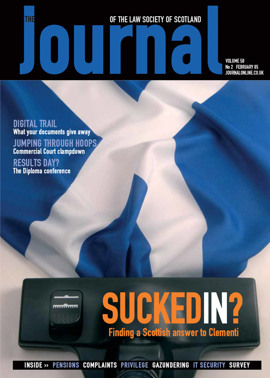X Factor for success?

The global exploitation of TV show formats such as “Big Brother” and “Pop Idol” is a multi-million dollar market. The sums involved have resulted in an increasing recognition (or at least a demand from those in the entertainment industry) that the law must develop in conjunction with the market to offer protection. The value of any format is based on the assumption that it is unique and cannot be copied with immunity.
This article will look at the limited UK legal response to date before briefly highlighting the approach taken by other countries in some high profile cases.
UK law so far…
Copyright does not protect ideas but rather the way in which ideas are expressed. All TV programmes/ broadcasting rights are protected in certain respects as literary, dramatic, musical or artistic works by the Copyright, Designs and Patents Act 1988.
The leading case is Green v Broadcasting Corporation of New Zealand [1989] RPC 700. This concerned the format of the famous UK show “Opportunity Knocks”, which had allegedly been copied in New Zealand. The Privy Council found that there was no copyright in this particular game show format because the format itself was not written down and was no more than a general idea for a talent show.
The Green approach was recently followed in a decision of Laddie J, Miles v ITV Network Ltd [2003] WL 23192242. Miles alleged that he supplied ITV with promotional material for a cartoon and that they copied his cartoon format in their programme “Dream Street”. Like Green, this case should not be seen as the nail in the coffin for UK law protecting game show formats. Miles admitted that the look and feel of the two programmes were very different, and the ITV creator produced designs before the date of Miles’ submission.
Last year there was a welcome possibility of a new ruling in this area when a high profile legal action was commenced against the creators of the TV programme “X Factor”. Simon Fuller, who created the format for the earlier “Pop Idol”, claimed that his copyright had been infringed by the rival “X Factor”. Thirty similarities between the two shows were highlighted to demonstrate that there had been “substantial copying” (the test for copyright infringement). It would have been interesting to see the UK court’s review and assessment of the protection available for the similarities listed, but the claim settled confidentially out of court.
International approach?
Recent Dutch and Brazilian decisions have afforded protection to TV formats. The Dutch Supreme Court in Castaway Television Productions Ltd & Planet 24 Productions v Endemol (2004) accepted that the “Survive” TV format was a work protected by copyright. The court took a pragmatic, objective approach and identified 12 elements making up the format, ruling that it would always depend on the circumstances as to how many elements would have to be copied to prove infringement.
In Brazil, Endemol were awarded substantial damages after a similar show “Casa Dos Artistas” (“The Artist’s House”) was found to be piggybacking on the “Big Brother” concept to make money (they had been involved in negotiations with Endemol but chose not to take a licence). Although the court ruled that the format here was more than the idea and covered the use of 24 hour cameras, microphones, limited public contact etc, it may be a difficult precedent to follow as the idea/format must be recorded in some tangible form to be protected.
In CBS v ABC (2003), the New York District Court refused to grant injunctive relief against the TV programme “I’m a Celebrity”, alleged to infringe the copyright of “Survivor”. The court identified key elements of each show and assessed differentiating factors – demonstrating that the usual detailed comparison exercise involved in more typical copyright cases equally applies to TV format claims. There is currently a high profile lawsuit in the US over the “Wife Swap” format and so things may change.
It is fair to say that copyright law, UK and further afield, is in a state of flux as to the protection to be given (if any) to TV formats. The current trend for an abundance of reality/game show TV may make it more difficult to prevent copying of the original format. Creators will increasingly have to use alternative or additional ways to control and protect their formats, such as licensing deals and trade mark registration for logos and catchphrases. The current UK law rests with the “Opportunity Knocks” case, but this may not remain the leading case for much longer as in the current climate of valuable media formats, it seems inevitable that further litigation will ensue.
Robert Buchan, Maclay Murray & Spens
In this issue
- Sell or transfer? (1)
- Promoting competition or competitiveness?
- Promoting competitiveness or competition?
- Not the final word
- Challenge of the FSA
- The pull of the south
- A world of change
- Finding the path
- An elusive model?
- Bank on it
- Trouble at t'mill
- Hidden evidence
- Money claims on behalf of children
- Secure connections
- Tread carefully
- Sell or transfer?
- Cracking the conflict code
- X Factor for success?
- Scottish Solicitors' Discipline Tribunal
- Website reviews
- Book reviews
- Is "gazundering" always bad?
- Defining the guideline






